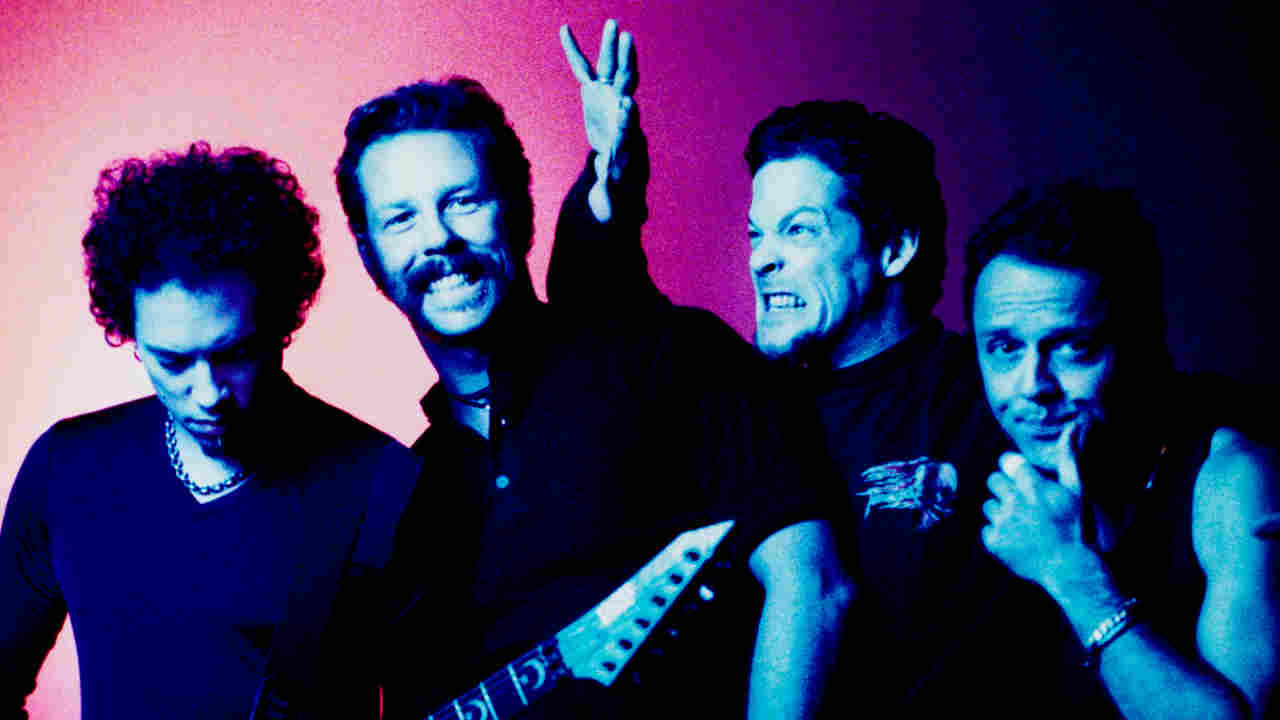3 Doors Down and the art of surviving success
Behind the charmed multi-platinum rise of the Mississippi alt-rockers lies a tale of bad reviews, tough crowds, ousted bandmates, death and darkness.
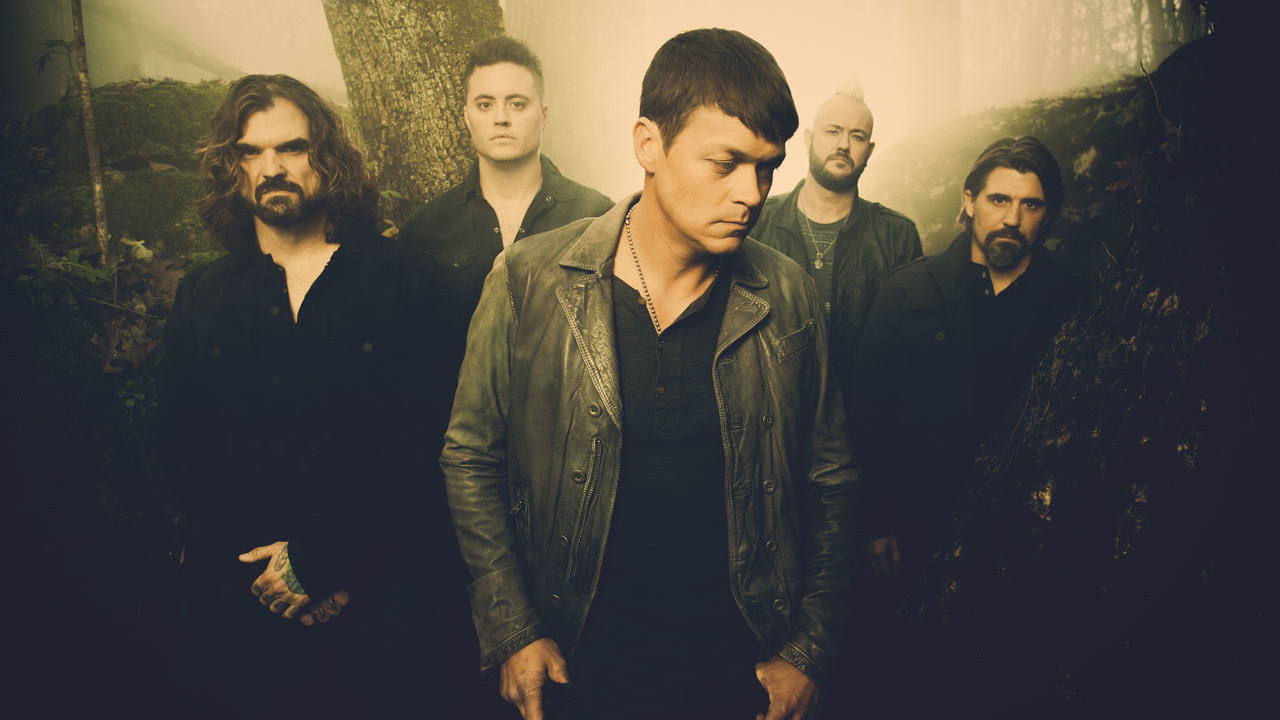
Select the newsletters you’d like to receive. Then, add your email to sign up.
You are now subscribed
Your newsletter sign-up was successful
Want to add more newsletters?

Every Friday
Louder
Louder’s weekly newsletter is jam-packed with the team’s personal highlights from the last seven days, including features, breaking news, reviews and tons of juicy exclusives from the world of alternative music.

Every Friday
Classic Rock
The Classic Rock newsletter is an essential read for the discerning rock fan. Every week we bring you the news, reviews and the very best features and interviews from our extensive archive. Written by rock fans for rock fans.

Every Friday
Metal Hammer
For the last four decades Metal Hammer has been the world’s greatest metal magazine. Created by metalheads for metalheads, ‘Hammer takes you behind the scenes, closer to the action, and nearer to the bands that you love the most.

Every Friday
Prog
The Prog newsletter brings you the very best of Prog Magazine and our website, every Friday. We'll deliver you the very latest news from the Prog universe, informative features and archive material from Prog’s impressive vault.
Words will never hurt 3 Doors Down. If the Mississippi alt.rockers do bother to read the reviews for Us And The Night, it’ll only be to chuckle at the disparity between the sniffy critical response to their sixth album and the till receipts. “We’ve always been a bad-review band,” considers guitarist Chris Henderson. “But that’s okay, because we’ve sold tons of records. The worse the reviews, the better we seem to do. That kinda became a thing for us. Like, ‘Go ahead, say whatever you want’. Because the numbers don’t lie.”
Some numbers, then. It’s two decades since 3 Doors Down set out in the one-horse town of Escatawpa, Mississippi. It’s 16 years since debut album The Better Life romped to six-times-platinum sales. To date they’ve shifted more than 20 million albums, despite the best efforts of the rock press, who have long deemed them too earnest, too corny, too American. “We’ve never been the most acclaimed band,” sighs vocalist Brad Arnold. “I’m not gonna be laying on my pillow at night thinking, ‘Damn’. I don’t care if we’re people’s favourite band. I just never want to be that band that people despise.”
Praised or panned, you sense that bringing Us And The Night to fruition is a big deal for 3 Doors Down. Arnold has described the album as a “labour of love”, and perhaps that’s more than a glib soundbite. The release marks a new chapter for the band, following a period that threatened to close the book on them. It was recorded last summer, and the personnel credits are practically unrecognisable, the line-up having shed original guitarist Matt Roberts and bassist Todd Harrell in consecutive years, and weathered press reports of drugs, death and darkness. “Half the writing team was gone, right there,” says Henderson. “We had to change the way we did business. We had to change the way we wrote. We definitely had something to prove.”
It wouldn’t be the first time the band have come out swinging. With a population of just 3,500, Escatawpa sits in Jackson County, Mississippi, but as far as the music industry was concerned, it might as well have been Middle Earth. “There was nothing to do in that town,” Arnold remembers of their formative years, “except go see 3 Doors Down play on the weekend.
“There was a little bar attached to a hotel, right off the Interstate Highway. The capacity was 150 people and we’d have 400 in there every weekend. They were rough crowds, but I guess it depends on how you look at it. If you were a bouncer, it probably wasn’t good. If you were a band, it was awesome. I can think of gigs where things got a little wild, fights broke out, but it was never anything that we couldn’t walk away from.”
Henderson tells me he’d have been happy enough to stay at that hand-to-mouth level. “We were playing bars for beers and for girls. We weren’t trying too hard to be anything or do anything. So it was easy for us, because we didn’t care if we got signed or not. When we did get signed, that’s when it got scary. Because now, all of a sudden, people are talking about you, comparing you to other bands. You gotta go out and do good.”
Opening their account with gruffly melodic early singles like Kryptonite and Loser, 3 Doors Down were duly bestowed with the post-grunge tag, and loosely grouped with bands like Creed, Nickelback and Puddle Of Mudd. Didn’t that pigeonhole feel reductive? “I guess ‘post-grunge’ is true,” decides Arnold. “That’s when we came out. But I’ve never been good at categorising music. People ask us, ‘So, are you alternative?’ I’m always like, ‘I dunno, man, I just play in a rock‘n’roll band.”
Sign up below to get the latest from Classic Rock, plus exclusive special offers, direct to your inbox!
“I guess,” picks up Henderson, “that post-grunge means Pro Tools and polished-up grunge music. So in that respect we would be considered post-grunge. But if you listen to us, man, we’re a rock band. Right from the start we were already so different, just with Brad opening his mouth. Because nobody else sounded like him. Still, to this day, nobody does.”
The pair insist there were hardships on the way up. “When we first got signed,” recalls Henderson, “we played at KROQ in LA. The band that went on before us was Coldplay. And the whole time that we were playing, the crowd was shouting ‘Cold-play! Cold-play!’ But to be fair, the band that closed that night was Creed, and the same thing happened to them.”
When debut album The Better Life arrived in February 2000, though, it quickly found a Stateside audience, reaching No.7 on the Billboard chart and ultimately selling more than six million copies. Two years later, Away From The Sun repeated the trick (almost), shifting four million units. “When we started touring that first record, it blew up fast, by the grace of God,” remembers Arnold. “But it was a lot to handle. It was a lot to hand to a 21-year-old boy. Like, ‘Here you go, here’s the world by the balls’.”
Henderson: “People cope with fame in different ways. I mean, some people drink, some people do other things, some people get reclusive, some people become assholes. Very few people embrace it and are okay with it. People recognise you; in the grocery store, at a stop sign. It can be tough. One time, me and Todd were out for dinner at this barbecue place, and someone came over with a rib bone off his plate and asked Todd to sign it. That’s pretty crazy. But he did it, man.”
Those kind of sales figures would be unthinkable if you’d arrived just a few years later. “Yeah,” says Arnold. “I’m glad we were out a little bit before the internet just completely took over. We slipped right in there on that one. Frankly, it afforded us a lot of financial freedom to where we didn’t just have to keep our nose to the grind.”
“A lot of bands just didn’t make it,” Henderson counters, ruefully. “Especially American bands. A lot of them just didn’t survive, man. More bands than I can even name. There were fifty to a hundred bands that I personally know people in, y’know, who didn’t make it. They just couldn’t survive the storm. There was this ten-year period where everyone had to kinda hold on to their hats, like, ‘What the hell is gonna happen?’ And we were able to get through that because of the records that we sold prior.”
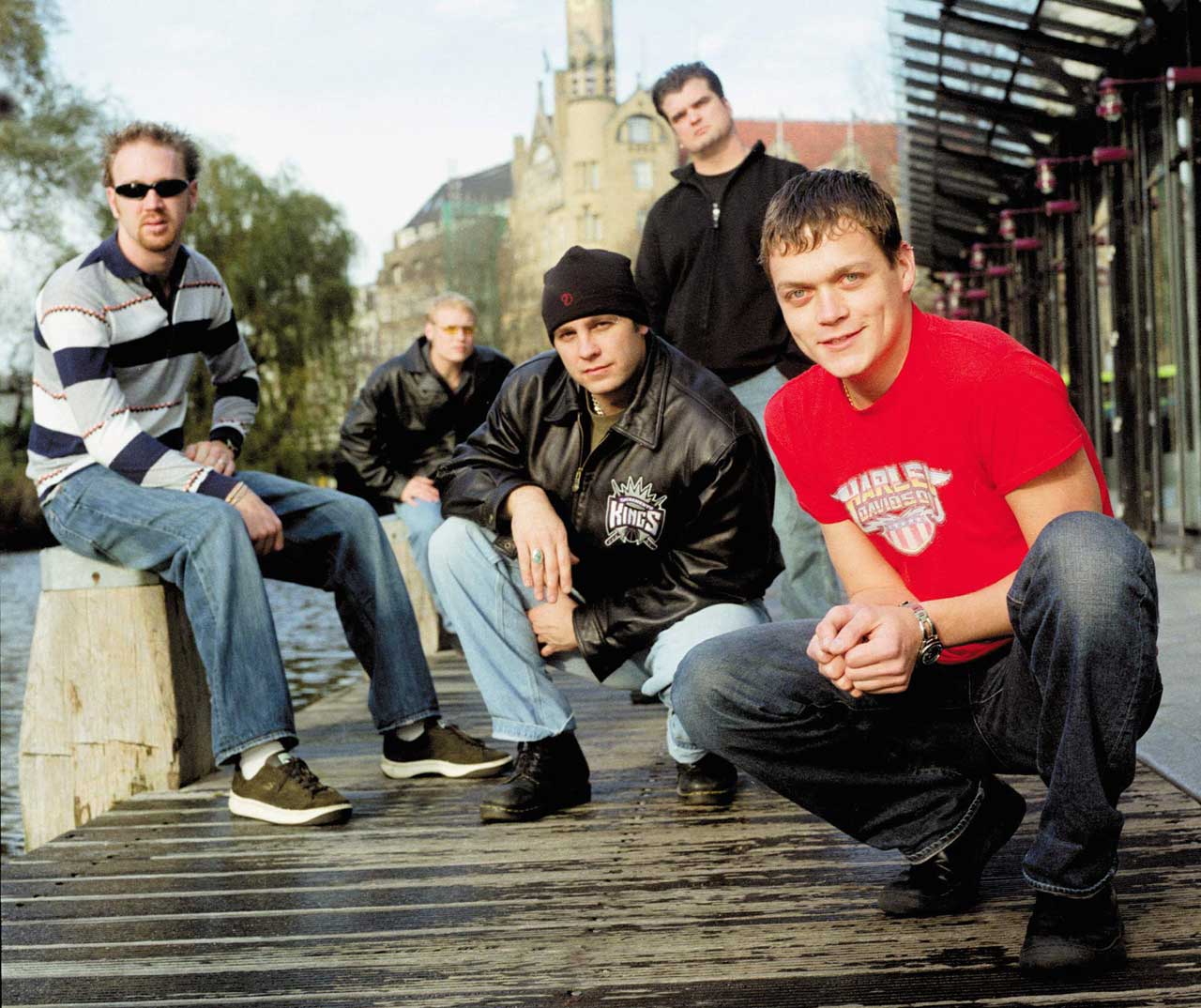
The hot streak continued with a brace of Billboard-topping albums – 2005’s Seventeen Days and 2008’s 3 Doors Down – that confirmed the band as heavy-hitters on home turf. And yet, to use the band’s own terminology, the numbers don’t lie, and that monster US success never translated around the world. “It’s definitely a challenge, man,” Henderson agrees. “When you get labelled as an ‘American band’, quote-unquote, especially with politics and everything that people think about, you kinda get roped into things and people that don’t have anything to do with you.”
“I think that people do get us,” says Arnold, “but we’ve just never got as big in other places. And I really hope that changes this time. The UK is somewhere we’ve always wanted success, and we’ve not had so much.”
If 3 Doors Down always sounded unmistakably American, it’s strange that there was rarely a whiff of their Mississippi heritage in the material. “I think we can sound southern,” considers Henderson, “if we really try. If you listen to our back catalogue you’ll hear swampy and Cajun stuff, like Father’s Son, which is Mississippi, for sure. If you listen to the first guitar solo in When I’m Gone, that’s a Skynyrd solo - on purpose. But then if you listen to the new record, there ain’t no Mississippi in that at all.”
The band’s Southern roots, the guitarist continues, were more prevalent in their attitude to stardom. “The thing is,” he reflects, “in 3 Doors Down we were never known for partying. But man, we partied so hard, we just did it without getting caught. A typical night would be five cases of beer, up all night, sleep all day. The thing about us is that it wasn’t just on show nights. We did it every single night. We enjoyed the ride, man. But we partied in private, because we didn’t want our mommas and grandmas finding out what we were really up to. We definitely have southern values.”
For further evidence of that, consider the incident that took place last July in Broomfield, Colorado. As Henderson remembers it, the band had just started up Citizen Soldier when a scuffle broke out in the audience. “I was stood right there,” he says. “This guy punched someone and hit a girl at the same time, with the same punch. If he’d stopped right there, y’know, it might just have been an accident. But then he grabbed her and shoved her out of the way, so he could go after this guy. And Brad, man, he doesn’t put up with that crap. If I had a mic, I’d have stopped him too…”
“I couldn’t stand by and let it happen,” picks up Arnold, who can be seen on YouTube shutting down the song and having the slugger ejected by security. “I’m glad that video cut off when it did, because I might have said a few more choice words. I do not believe in violence towards women. I believe a woman is equal to a man in every way, but nonetheless I just don’t believe a man should ever raise his hand to a woman. That’s the way I was raised.”
You’ve stayed true to the ethics of your upbringing?
“I’m incredibly thankful for a good family and a solid foundation,” he says, nodding. “That kept me straight. I don’t know how it would have turned out. Sometimes, I look back and I wonder how we ever made it through.”
Not everyone did make it, though. After a five-album run and a lifelong friendship, guitarist Matt Roberts’s exit was confirmed in May 2012, the guitarist citing health issues, the band describing it as “amicable”, and filling his shoes with former guitar tech Chet Roberts.
“Y’know, it’s funny,” Henderson sighs, “because it wasn’t that hard [to part ways]. Because Matt was having trouble for a really long time. So it was really harder to keep him around than it was to let him go. Does that make sense? We had to do so much extra work for him, and it wasn’t because he was a bad guy or anything like that. It was just because he was having trouble, y’know? So everyone else felt like they had to kinda carry him around a little bit. So when he decided it was time to move on, we were kinda relieved.”
Arnold sounds more awkward: “It was difficult. I’ve known him my entire life. He’s my cousin, actually. He and I used to play baseball together. Y’know, we just kinda went our own ways. But we wish him all the best in everything that he does.”
The case of Todd Harrell is a more thorny subject. The bassist began taking prescription painkillers during childhood for neck injuries, and needed them again in the post-millennium after his knee problems were exacerbated by the demands of playing live. In April 2013 he was charged with vehicular homicide in Nashville, reportedly driving under the influence of Lortab and Xanax when he caused the death of 47-year-old Paul Shoulders by clipping his pickup truck at high speed. During a subsequent search at Metro Jail, sheriff’s deputies found eight Xanax pills, eight Oxymorphone pills and 24 Oxycodone pills concealed in Harrell’s sock.
The following February, history repeated itself when Harrell was arrested again in Mississippi on a separate DUI charge. The band’s tone hardened; they didn’t want him back. “We didn’t try people out,” Henderson says of replacement bassist Justin Biltonen. “We didn’t hold open auditions. We knew Justin because he was the guitar player in a band that I worked with in my studio here in Nashville. He didn’t even play bass. We just hired him. We said, ‘You’re the guy. Come on. Go get a bass.‘”
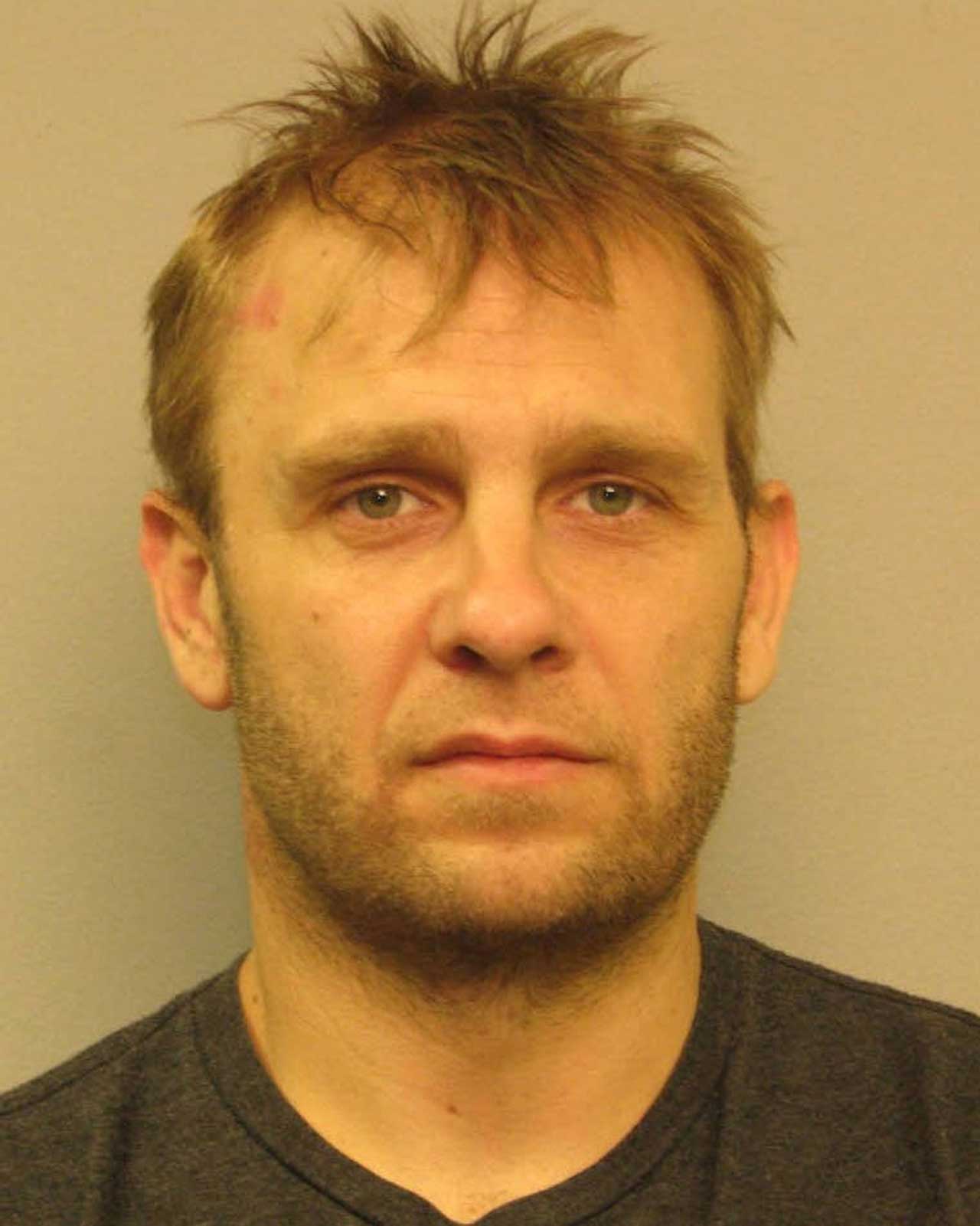
Last December, Harrell was finally sentenced to two years incarceration and six years probation for the 2013 offence. “I’m remorseful for the whole family,” the bassist said, upon taking the stand. “It hurts me I had something to do with that. I never intentionally hurt anybody. This was a terrible accident. I hope you guys can forgive me for what I did in that thing.”
It’s understandable that Harrell was suspended indefinitely from the band: a multi-platinum juggernaut has to keep rolling. But it must have been hard to cut your ties with a home-town friend?
“Well, as a friend, it was hard,” Henderson begins. “It was really hard as a friend. At the time when it all happened… I mean, I don’t want to sound selfish at all, because I’m trying not to be. But man, like, [Harrell] had to go through all the stuff he had to go through. But at the end of the day, man, he made those decisions that put him there. He made all those decisions on his own, without any help from anybody else. He had several chances to kinda get his quote-unquote shit together, and he didn’t, and tragedy happened.
“Now, after that happened,” continues Henderson, “the band, without any choice of our own, we had to fight the press. Had to listen to everyone call us bad people and everyone rip us new assholes about this and that, blah blah blah. So we had to kinda field the storm. Y’know, [Harrell] was able to remove himself from that part of it. We had to do that. So it was hard, because I love him, he’s my friend and my brother. But it was easy, because, man, it was just better to get him out and let him go and try to move on. Because 3 Doors Down is bigger than one guy, y’know?”
The singer is more succinct: “Todd is dealing with a lot of things right now. Y’know, I’ve known Todd my entire life, and he’s got a long road ahead of him right now, but I just say my prayers for him, and I pray that God keeps him where he needs to be.”
Does it still feel like 3 Doors Down without those two?
“Even more so than before,” Henderson offers. “3 Doors Down has always been about playing live, and about the music, more than anything else. More than friendship. Y’know, we’re always friends, we’re always brothers. But the band has always been about that two hours on stage.”
“It really does,”Arnold adds. “A lot of things have changed for us, but I think this band is in the absolute best place it’s ever been in.”
The hooky anthemics of Us And The Night bear that out, with lead-off single In The Dark suggesting the new line-up is rubbing along well. Arnold and Henderson are patently proud of the new material, more so than its predecessor, 2011’s Time Of My Life. “On our last record,” says the guitarist, “we tried a different approach to songwriting. We hired outside songwriters to come in and kinda help us with the writing, just to see what would happen. And what happened was these ‘songwriters’ came in and rewrote 3 Doors Down songs. That’s all they did. They listened to our back catalogue and brought the same chord changes and just restructured them – as songwriters do – to make them try to sound different.”
“But you can’t fool nobody doing that.” he snorts. “And the fans instantly responded, like, ‘No man, that’s not cool’. Some of the big ballady stuff on Time Of My Life came from other people, and not so much 3 Doors Down. So that would be where I have to draw the line. But I’m pleased with this new album. We definitely still have something to say.”
So we’ve established that you won’t read the reviews. But do you care how Us And The Night performs commercially?
Henderson: “At the end of the day, it’s not gonna be as commercially successful as our last records, because people don’t buy records the same way that they did. If you’re thinking about record sales, then you’re gonna be disappointed. You really can’t gauge it like that any more.”
“We care,” Arnold says, “but it’s not the first priority. It’s more about, I hope somebody gets something out of it. I hope they enjoy it. And I hope there’s a song they can attach to something in their lives, to help them through something. That means so much more to me than record sales or awards or anything like that. Because that’s what music is all about, man. Y’know, I’ve had those songs in my life, too, when you’re going through something hard and you hear that one song and you’re like, ‘God, I needed that’. I hope we can be that for somebody.”
It’s a lofty ambition, perhaps, but as the rock heavyweights drop like flies around us, God knows the scene needs a contemporary band with its sights set higher than a late-afternoon slot at Download. A final question, then: do you think your generation of bands has a duty to step up and replace the dwindling generation of headliners?
“It’s harder now,” Arnold says, “because there’s so many more bands. There’s such a diverse cross-section and just such a variety of bands to listen to, that I don’t know if there’ll ever be artists as big as those guys were. There may be icons now, but I don’t see any artists right now that deserve to be at the stature of somebody like David Bowie. But yeah, we definitely have to step up. It’s up to the bands to become legendary.”
Us And The Night is released on March 11 on Spinefarm/Republic.
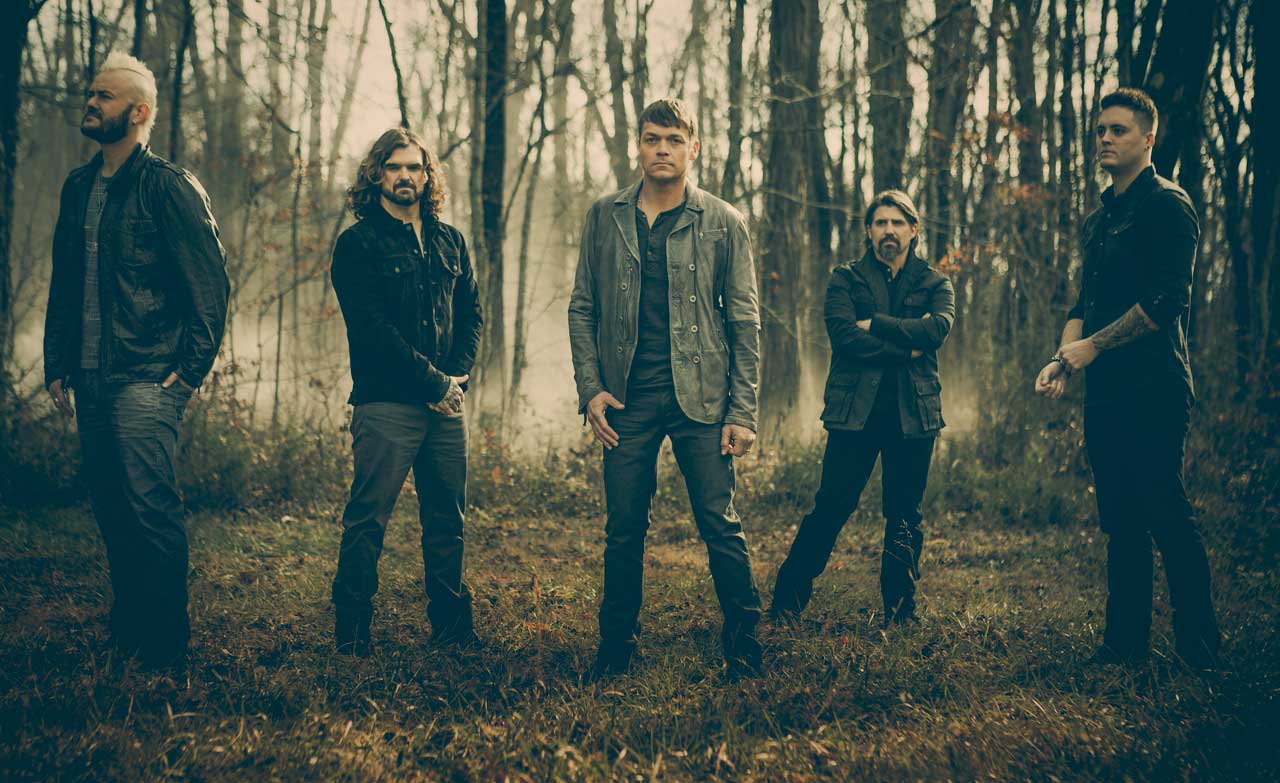
Henry Yates has been a freelance journalist since 2002 and written about music for titles including The Guardian, The Telegraph, NME, Classic Rock, Guitarist, Total Guitar and Metal Hammer. He is the author of Walter Trout's official biography, Rescued From Reality, a music pundit on Times Radio and BBC TV, and an interviewer who has spoken to Brian May, Jimmy Page, Ozzy Osbourne, Ronnie Wood, Dave Grohl, Marilyn Manson, Kiefer Sutherland and many more.

